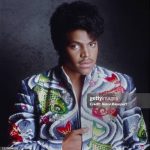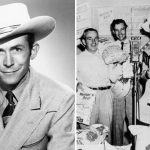𝘽𝙤𝙮𝙨 𝘿𝙤𝙣’𝙩 𝘾𝙧𝙮” – 𝙏𝙝𝙚 𝘾𝙪𝙧𝙚.dx

Released in 1979, “Boys Don’t Cry” by The Cure is a seminal track that embodies the emotional complexity and introspective lyricism characteristic of the post-punk and new wave movements. As one of the band’s most iconic songs, it captures the essence of youthful vulnerability and regret while showcasing The Cure’s distinctive sound and approach to songwriting.
Musically, “Boys Don’t Cry” is characterized by its catchy melody and poignant instrumentation. The song features a jangly guitar riff that serves as a central hook, accompanied by a driving bass line and steady drumming. The upbeat tempo and melodic guitar work create a contrast to the song’s introspective lyrics, highlighting The Cure’s ability to blend somber themes with an engaging musical backdrop. The song’s arrangement is both melodic and reflective, capturing the essence of early post-punk and new wave aesthetics.
Lyrically, “Boys Don’t Cry” explores themes of emotional repression and regret. The song’s narrative revolves around a man reflecting on his past actions and the consequences of his emotional detachment. The chorus, with its repeated line “I tried to laugh about it, hiding the tears in my eyes,” conveys the central theme of the song—the struggle between outward appearances and inner feelings. The lyrics delve into the societal expectation that men should not express their emotions openly, highlighting the emotional pain and regret that often lie beneath a facade of stoicism.

Robert Smith’s vocal delivery in “Boys Don’t Cry” is both expressive and evocative, capturing the sense of vulnerability and remorse embedded in the lyrics. His distinctive voice, characterized by its emotive quality and slight melancholy, adds depth to the song’s narrative, making the listener feel the protagonist’s sense of loss and regret more acutely.
The music video for “Boys Don’t Cry,” directed by Simon Gallup and Robert Smith, further enhances the song’s emotional impact. The video features simple yet effective visuals, including footage of the band performing the song and scenes that reflect the song’s themes of introspection and emotional conflict. The straightforward, unembellished style of the video complements the song’s raw and honest tone.
“Boys Don’t Cry” had a significant impact on The Cure’s career and the broader music scene. The song became one of the band’s most well-known and enduring hits, establishing them as key figures in the post-punk and new wave movements. Its success helped to solidify The Cure’s reputation for crafting emotionally resonant and introspective music, paving the way for their future work and influencing subsequent generations of artists.
In conclusion, The Cure’s “Boys Don’t Cry” is a powerful exploration of emotional vulnerability and regret, encapsulated in a melody that combines upbeat instrumentation with poignant lyrics. The song’s ability to convey deep emotional truths through its music and lyrics highlights The Cure’s talent for blending introspective themes with engaging musicality. Its enduring appeal and impact on the music landscape underscore its significance as a classic track of the late 1970s and early 1980s, continuing to resonate with listeners across generations.











